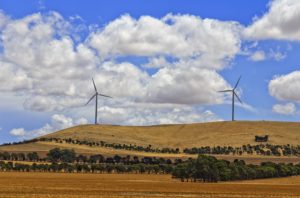
Time’s up for body-clock disruption
Sleep has become the holy grail of health and wellbeing. But for some people, particularly shift workers and others with a chronically mistimed body-clock, getting a […]

Sleep has become the holy grail of health and wellbeing. But for some people, particularly shift workers and others with a chronically mistimed body-clock, getting a […]

A personalised body-clock tracker, treatments for adolescent disordered eating, halting dengue fever in its tracks and unlocking the nexus between memory loss and dementia have been […]

Residents who live within 10km of a wind farm report more sleep issues from other sources, such as insomnia, stress and snoring spouses, than the nearby […]
Flinders researchers will replicate low frequency noises generated by wind farms for the first major study on wind farms and sleep.
Medical researchers at Flinders University have received a total of more than $6.67 million in funding in the latest rounds of grants from the National Health and Medical Research Council.
Flinders University sleep experts Dr Richard Weeks and Associate Professor Peter Catcheside have developed a new system to better detect a sleep “nightmare”.
People with epilepsy may soon be able to sleep a little easier, thanks to research carried out by a team of researchers at Repatriation General Hospital and Flinders University.
Sleep researchers from Flinders University and the Adelaide Institute for Sleep Health are road-testing a new pillow that could help alleviate snoring for back sleepers.
Three Flinders University researchers have received prestigious Future Fellowships from the Australian Research Council, securing $2.18 million to fund their research over the next five years.